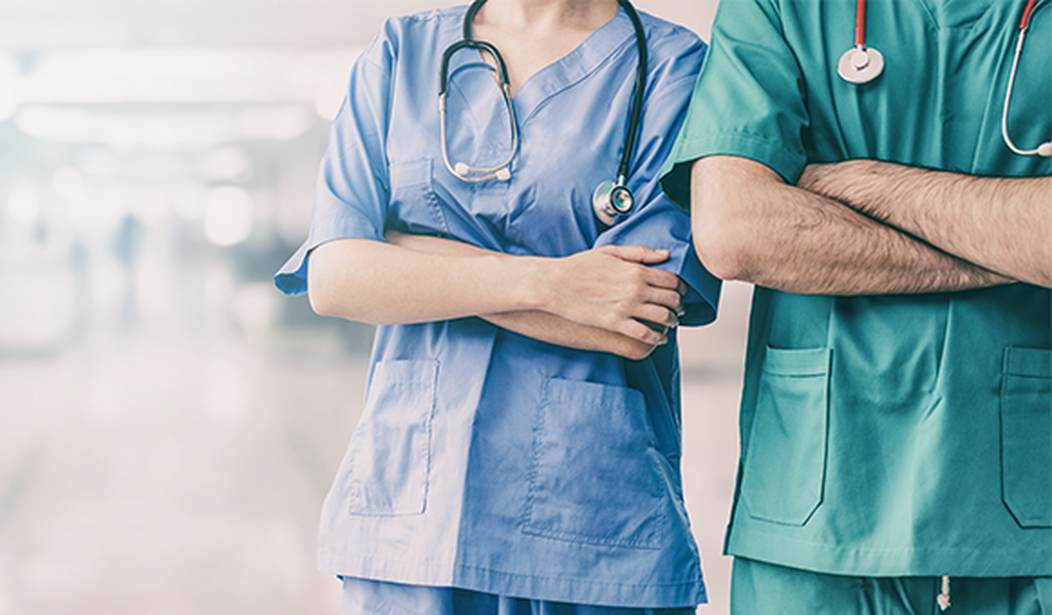A few caveats, to begin: First, Dr. Anthony Fauci is correct to caution that before we start celebrating a true therapeutic breakthrough that can be safely applied to Coronavirus patients writ large, reliable clinical studies must be completed. Second, the following headline is based on a study performed in China, so there are reasons galore to view it skeptically. Nevertheless, the accompanying New York Times story is hopeful -- and this development is another breadcrumb along a trail to real progress:
Does this still count as “false hope” or “misinformation”? pic.twitter.com/86fJtqmrKU
— Guy Benson (@guypbenson) April 1, 2020
The malaria drug hydroxychloroquine helped to speed the recovery of a small number of patients who were mildly ill from the coronavirus, doctors in China reported this week. Cough, fever and pneumonia went away faster, and the disease seemed less likely to turn severe in people who received hydroxychloroquine than in a comparison group not given the drug. The authors of the report said that the medication was promising, but that more research was needed to clarify how it might work in treating coronavirus disease and to determine the best way to use it. “It’s going to send a ripple of excitement out through the treating community,” said Dr. William Schaffner, an infectious disease expert at Vanderbilt University. The study was small and limited to patients who were mildly or moderately ill, not severe cases. Like many reports about the coronavirus, it was posted at medRxiv, an online server for medical articles, before undergoing peer review by other researchers. But the findings strongly support earlier studies suggesting a role for the drug, Dr. Schaffner said.
Additional breadcrumbs: Tucker Carlson highlighted a French study that also seemed to show positive effects from hydroxychloroquine, which reportedly had some major methodological issues. But time is of the essence, and if a number of smaller, less-than-reliable studies are pointing in the same, optimistic direction, it would be malpractice not to take notice. Here's another doctor touting this form of treatment (in a clip shared by another doctor), noting the impact among his patients:
Recommended
Dr. Stephen Smith, an infectious disease specialist, on using hydroxychloroquine/azithromycin combo to treat #COVID19 patients:
— Nicole Saphier, MD (@NBSaphierMD) April 2, 2020
“It’s a game changer. It’s an absolute game changer. … I think this is the beginning of the end of the #pandemic. I’m very serious.” pic.twitter.com/F716IhtEvA
A man from Michigan, meanwhile, has credited this same drug combination for a rapid reversal of fortunes in his battle with COVID-19:
"I was struggling to breathe. I felt like I was slowly drowning and I was sitting there thinking I'm not going to make it until midnight," he said. Santilli says the experimental drugs Hydroxychloroquine and Azithromycin brought him back from the brink. The 38-year old was prescribed the drugs a little more than a week ago at Henry Ford Macomb where he was hospitalized for COVID-19. He says a doctor told him they'd exhausted treatment options. An infectious disease physician recommended he try both. "He stated at that point for COVID-19 patients they saw a lot of positive results in China and South Korea it would be advantageous to try it," Santilli said. "Right away I saw improvements in a few hours: the gasping for air stopped; a lot of my symptoms went away, and really it was a turning point almost a 180 degree turn as to what I was experiencing." The FDA recently approved shipping Chloroquine and Hydroxychloroquine products to public health authorities across the country to treat severe cases of COVID-19
I am (obviously) not a doctor, and I'm not saying that this is anything close to a silver bullet. I agree that wider trials are needed in order for the Hydroxychloroquine/Azithromycin cocktail to be considered a bona fide, approved treatment. One such trial is currently playing out in real time among more than 1,000 patients in New York, and another is ramping up in Seattle. For the moment, evidence remains scant, anecdotal, and small-scale. Shortages are a real concern. But the drumbeat of negativity from many in the press -- which has certainly felt like more than healthy journalistic skepticism at times -- seems to be about President Trump's optimism in mentioning this particular mix of drugs.
The worst example of this political "gotcha" was a now-infamous NBC News story about a couple (lefty Democratic donors, as it turns out) who ingested aquarium cleaning product, mistaking it for the drug Trump had mentioned (with more rhetorical restraint than usual, I'd add) on several occasions. The husband tragically died, the wife implicated the president, and NBC reported it, burying the 'aquarium' detail, and setting off a fevered round of Trump blame among the usual suspects. As more optimistic evidence on this front arrives (this thread is also anecdotal but worth considering), the reflexive naysaying -- which was tellingly directed at Trump, but not Cuomo -- looks ever pettier and more partisan. Twitter ought to explain why conservative Americans are being suspended for discussing these outcomes, while Chinese propagandists remain free to share their actual misinformation on the platform. I'll leave you with more potentially good news on antibody treatment and vaccine developments, as well as a reminder about the urgency of verifying and implementing such treatments over the coming months:
If we don't develop effective therapeutics by summer and have them ready for fall, much of what we're doing now could be lost as #COVID19 comes back again. We must take a new more concerted approach than ever before to industrializing development of a drug https://t.co/fPOuLSUZyi
— Scott Gottlieb, MD (@ScottGottliebMD) April 2, 2020

























Join the conversation as a VIP Member